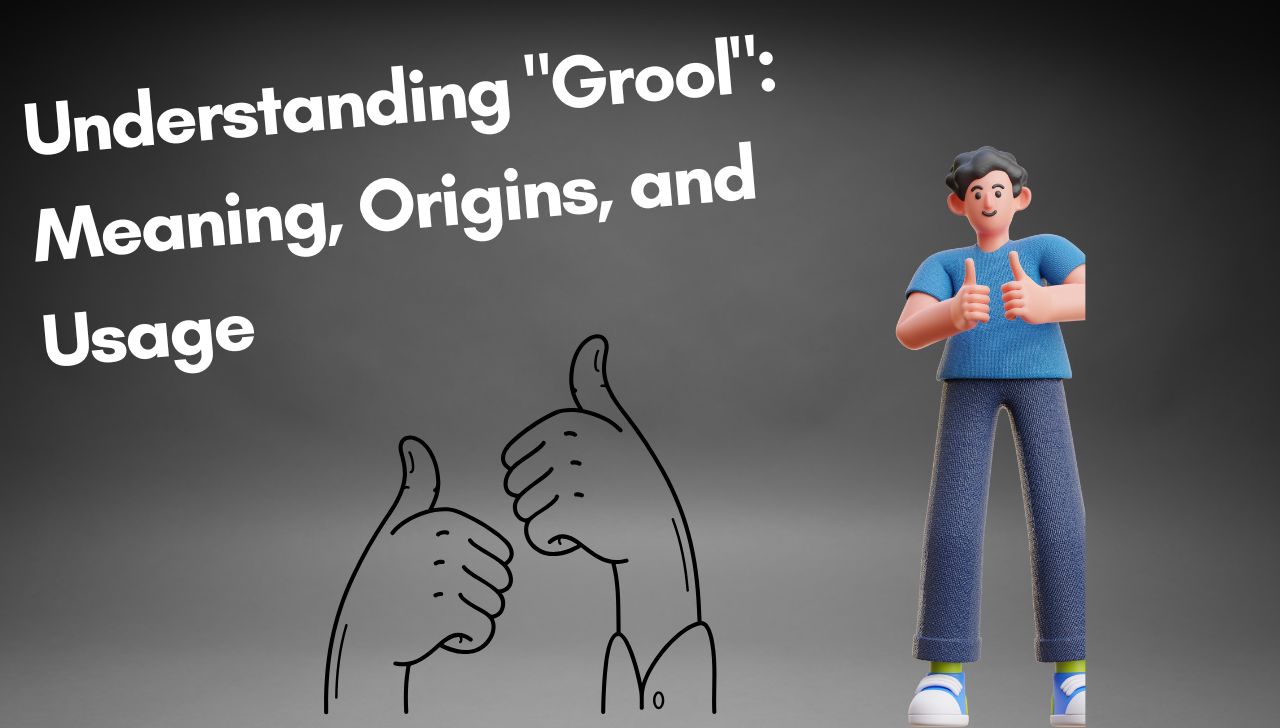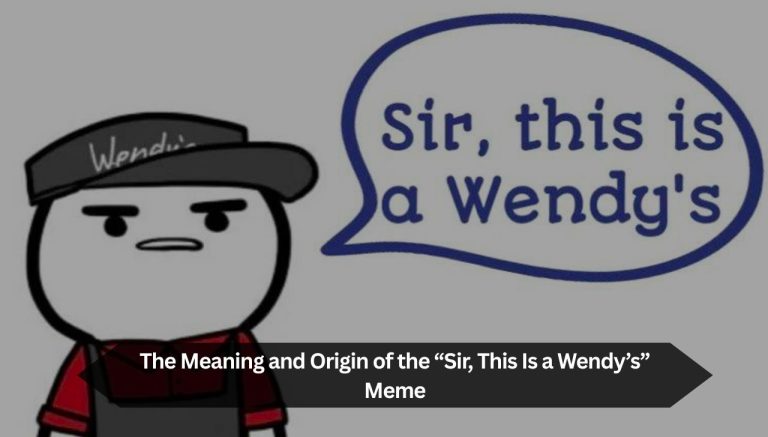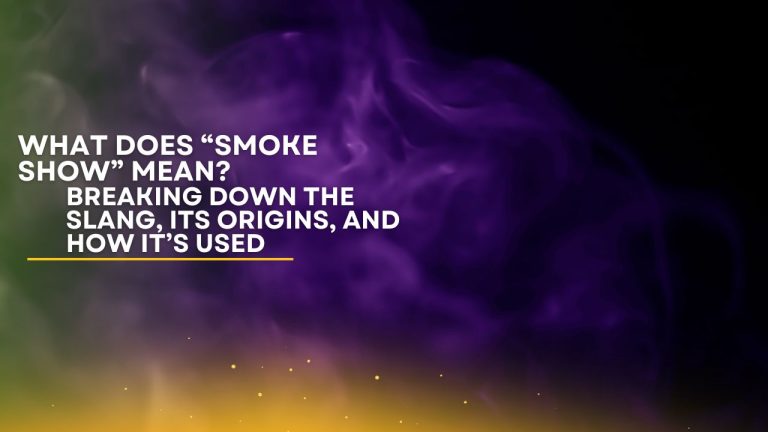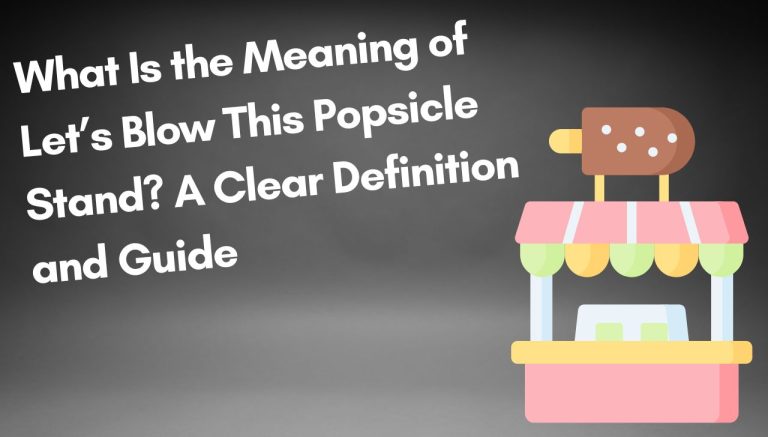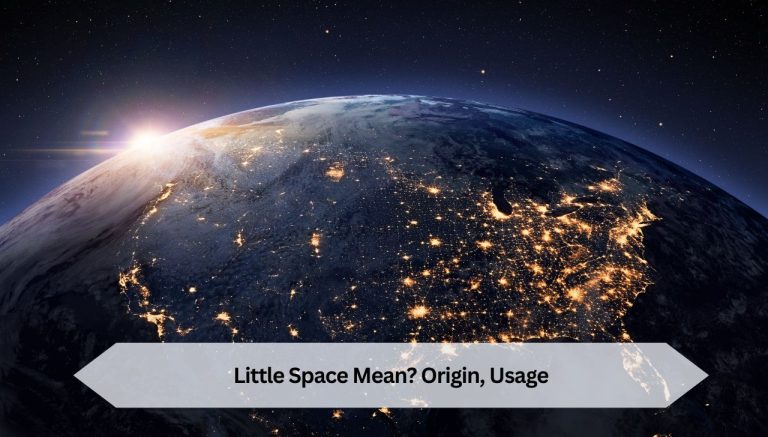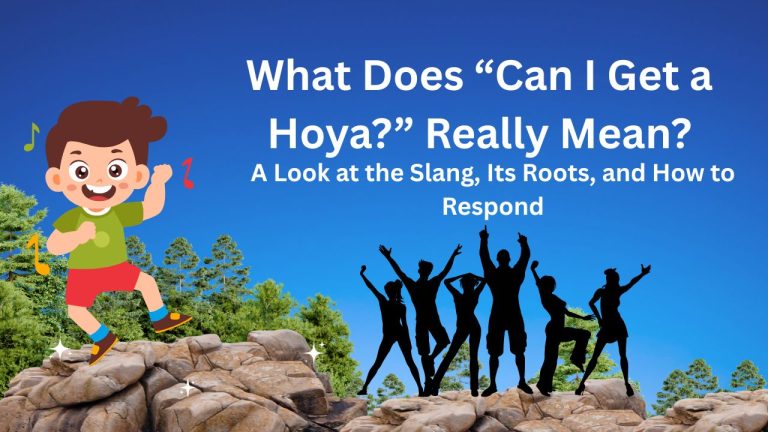Understanding “Grool”: Meaning, Origins, and Usage
Ever heard someone say “grool” and done a double take? You’re not alone. This quirky little word might sound like a slip of the tongue, but it has a pop culture backstory—and a surprisingly sticky place in modern slang. Coined in the early 2000s, “grool” blends great and cool into one awkwardly charming expression. But how did it catch on? And why does it still pop up in conversations and memes today? Whether you’re a linguistics nerd, a ‘Mean Girls’ fan, or just curious, understanding “grool” means getting a glimpse into how language evolves in real time.
What Is Grool and Why Does It Matter?
You’ve heard it. Maybe in a movie. Maybe from a friend trying to sound funny or quirky. The word “grool” has popped up in pop culture and casual chat. But what is it? And why does it keep showing up?
“Grool” might sound made-up—and it kind of is—but it’s also a little slice of linguistic magic. A portmanteau. A happy accident. A word born from a moment that stuck. It’s one of those quirky blends that says more than the two words it comes from. And let’s be honest, it’s fun to say. If you’ve ever stumbled over your words, got nervous, or tried to say too many things at once—well, welcome to the world of grool.
The Meaning of Grool
Let’s break it down. “Grool” is a blend of “great” and “cool.” You know when something’s both great and cool? Like a band you love finally dropping a surprise album. Or your friend showing up in a ridiculous but amazing outfit. That’s grool.
It’s a shorthand way to show enthusiasm when plain “cool” or “great” just won’t cut it. It carries a playful edge. It’s not formal. It’s not serious. It’s the kind of word you’d use when you’re excited but trying not to show it too much—or when you’re goofing off and mixing your words like your brain is racing ahead of your mouth. And let’s be clear: grool isn’t just a typo or a slip-up anymore. It started that way, sure. But now? It’s a word in its own right, with its own vibe.
Examples of Grool in Everyday Language
Scene 1:
Two teens are hanging out, and one of them says:
“You got backstage passes? That’s…grool.”
They both laugh. It’s awkward. It’s honest. It fits.
Scene 2:
You’re texting your friend:
“The new café downtown? Grool vibes. Chill music, great coffee.”
Scene 3:
Someone posts a pic on Instagram with the caption:
“Grool moments only.”
See the pattern? It’s casual. It’s not meant to impress. It’s meant to feel real. If you try too hard using it, it can backfire. But when it lands, it makes you sound relaxed, self-aware, maybe even charming in a dorky way.
Origins of the Word Grool
Alright—where did it actually come from?
Blame (or thank) Mean Girls. That’s right—the 2004 teen comedy classic. There’s a scene where Cady Heron (played by Lindsay Lohan) tries to talk to her crush. She starts to say “great,” then switches to “cool” mid-word. What comes out?
“Grool.”
It’s awkward. It’s adorable. And it stuck.
The moment was small, but like many lines from Mean Girls, it wormed its way into the culture. “Grool” became a kind of badge for anyone who’s ever fumbled through a sentence while trying to be impressive.
It was never meant to be a “real word,” but then again, neither were a lot of things. Language changes. We invent stuff all the time. Shakespeare did it. Kids do it. The internet does it daily. Grool’s appeal comes from its roots. It’s not polished. It’s not scripted. It’s human.
How to Use Grool Correctly
Now, this might sound strange—because “grool” isn’t in the dictionary (at least not officially)—but it still has rules.
1. Keep it informal.
Grool doesn’t belong in a resume, a pitch deck, or your wedding vows (unless you’re leaning into the joke hard).
2. Use it with friends.
It’s an in-the-know word. If your audience doesn’t get it, it might fall flat. But among friends or fans of Mean Girls, it clicks.
3. Tone matters.
“Grool” is laced with irony. It’s knowingly awkward. If you say it too seriously, it sounds off. It’s like using “awesome-sauce” unironically in 2025—it doesn’t always age well.
4. Don’t overdo it.
Like any catchphrase or trend word, grool can lose its charm fast if it’s forced into every sentence.
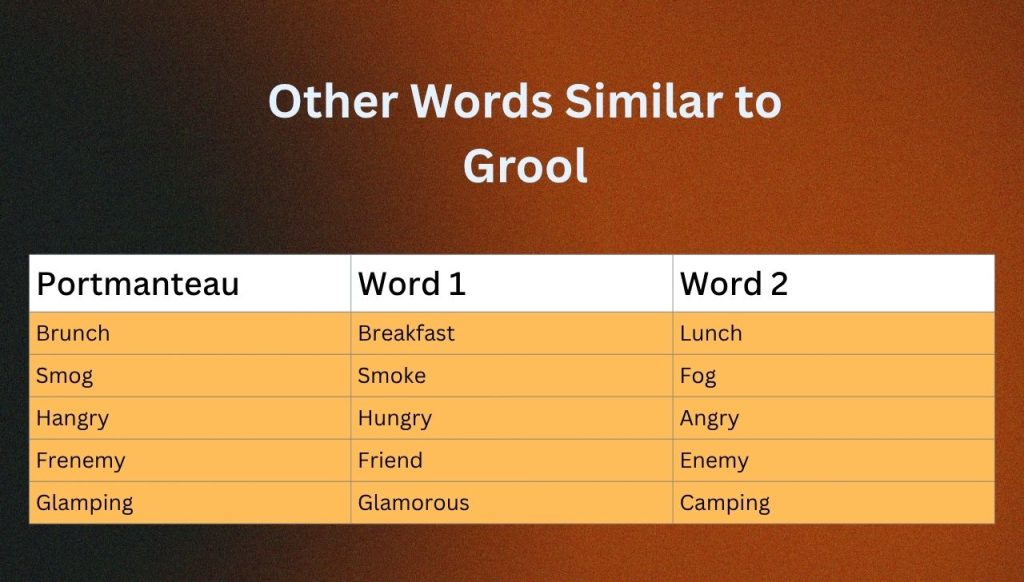
Other Words Similar to Grool
English is full of mashups and playful blends. Grool has cousins.
| Portmanteau | Word 1 | Word 2 |
|---|---|---|
| Brunch | Breakfast | Lunch |
| Smog | Smoke | Fog |
| Hangry | Hungry | Angry |
| Frenemy | Friend | Enemy |
| Glamping | Glamorous | Camping |
These portmanteaus often stick because they fill a gap. They describe something real, something we didn’t have a word for before.
“Grool” falls more into the novelty zone, like:
- Cray-cray – totally crazy (said with a wink)
- Awesomesauce – awesome, with extra cheese
- Adorkable – adorable + dorky
They’re not always timeless, but they tell you a lot about the cultural moment they came from. And they’re sticky. Especially when tied to pop culture moments.
Conclusion
And maybe that’s the point. Grool isn’t about being correct. It’s about being real. It’s the verbal version of tripping over your shoelaces in front of your crush, then laughing it off. It says: “Hey, I’m trying. I’m human. Let’s not take this too seriously.” So next time you’re trying to sound great… or cool… and the words tangle—just go with grool.

A former editor and grammar geek, David Langford has spent years refining the art of clear communication. He combines his journalism background with a knack for teaching, offering straightforward tips to master tricky grammar rules. When he’s not proofreading, he’s probably debating Oxford commas.

